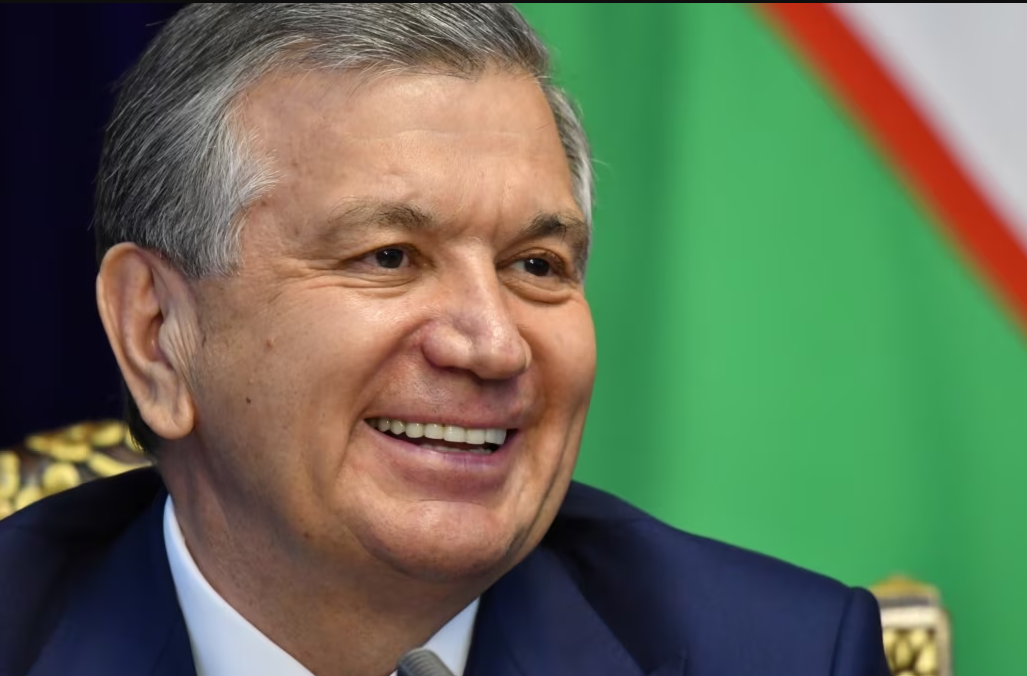Uzbek president Shavkat Mirziyoyev

Uzbek president Shavkat Mirziyoyev is a prominent political figure in Uzbekistan, and during his presidency, he initiated several significant reforms and changes aimed at modernizing the country and improving its international standing. Some of his key actions and initiatives include:
Economic Reforms: President Mirziyoyev implemented economic reforms to attract foreign investment, reduce bureaucracy, and encourage entrepreneurship. These reforms were intended to make Uzbekistan’s economy more market-oriented and open to international trade.
Opening Up to the World: Under Mirziyoyev’s leadership, Uzbekistan pursued a more open foreign policy, fostering better relations with neighboring countries and engaging with international organizations. This approach aimed to enhance Uzbekistan’s role in regional and global affairs.
Liberalization of Agriculture: The president initiated reforms in the agricultural sector, including providing subsidies to farmers, improving land usage policies, and promoting modern farming techniques. These changes were designed to boost agricultural productivity and food security.
Human Rights and Civil Society: While some improvements were made, Uzbekistan continued to face criticisms over human rights issues, including freedom of expression and political freedoms. President Mirziyoyev did take steps to release political prisoners and reduce censorship, but challenges remained in these areas.
Regional Cooperation: President Mirziyoyev worked to improve relations with neighboring countries in Central Asia, leading to increased cooperation on various issues, such as regional security, trade, and transportation.
Tourism Promotion: Uzbekistan made efforts to promote its rich cultural heritage and historical sites, attracting more tourists to the country. Visa procedures were simplified, and infrastructure for tourism was improved.
Economic Growth: Uzbekistan has been making efforts to modernize its economy, attract foreign investment, and diversify its industries. The prospects for continued economic growth were generally positive. The country’s strategic location in Central Asia, abundant natural resources, and a large labor force were seen as potential drivers of economic development.
Regional Cooperation: Uzbekistan’s efforts to improve relations with its Central Asian neighbors, particularly through initiatives like the Central Asian Leaders’ Summit, had the potential to foster greater regional stability and cooperation. Enhanced regional connectivity and trade could benefit the country’s economic prospects.
Reforms: President Shavkat Mirziyoyev’s reform agenda aimed at reducing bureaucracy, improving the business environment, and enhancing governance. The success of these reforms was seen as critical to attracting foreign investment and fostering economic growth.
Tourism: Uzbekistan’s rich cultural heritage and historical sites had the potential to make it a more attractive destination for tourists. Continued investment in tourism infrastructure and marketing could lead to further growth in this sector.
Geopolitical Considerations: Uzbekistan’s strategic importance in Central Asia could make it a key player in regional and global geopolitics. The country’s foreign policy choices and alignments could significantly impact its prospects for regional stability and economic development.
Human Rights and Governance: Progress in addressing human rights issues and enhancing political freedoms remained a topic of interest and concern. Improvements in these areas could positively impact Uzbekistan’s international reputation and cooperation with Western nations.





